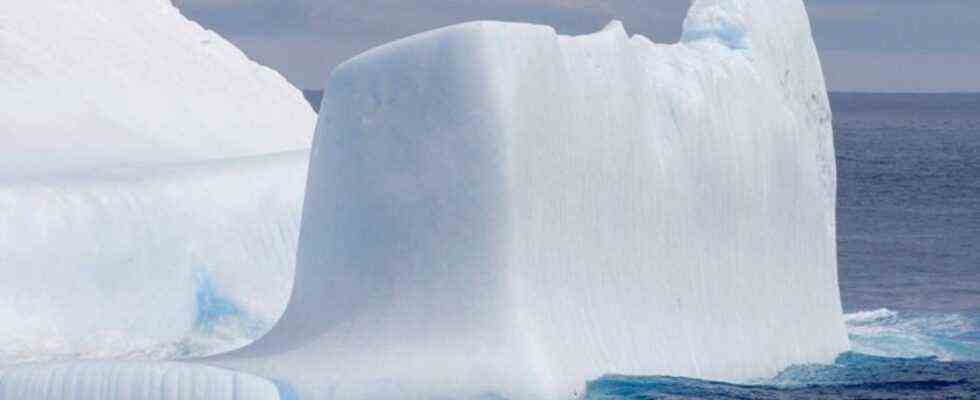nature
Antarctic Commission: “Unique opportunity for marine protection”
The Antarctic Commission CCAMLR will meet until October 29th. Photo: Kyodo / dpa
© dpa-infocom GmbH
The Antarctic Commission CCAMLR will meet for twelve days from Monday to protect marine areas. Researchers warn in advance of “massive upheavals” in the ecosystems.
Climate experts around the world are urgently calling for the designation of new marine protected areas in East Antarctica, the Antarctic Peninsula and the species-rich Weddell Sea.
The next two weeks could bring decisive progress in the run-up to the UN climate summit in Glasgow: The topic is one of the central points of the 40th conference of the Antarctic Commission CCAMLR, which begins on Monday in Hobart, Australia.
“The area covers almost four million square kilometers and thus one percent of the world’s oceans – that’s roughly the size of the EU,” said a message from the German Environmental Aid (DUH) and other climate protection organizations. It would be the largest marine protection measure in history and “a key lever in the fight against the global climate crisis”.
Special role for Germany
Germany has a special role to play in the negotiations because the federal government introduced the proposal for the protection of the Wedell Sea years ago, which a large majority of the member states also approve, according to the DUH. So far, however, the project has always been blocked by China and Russia.
“The Southern Ocean in Antarctica is a vital ecosystem and plays a crucial role in maintaining the 1.5 degree limit. However, it is heating up at an unprecedented rate and is currently heading towards an ecological tipping point, ”warned DUH managing director Sascha Müller-Kraenner. The federal government must do everything possible to ensure that the protected areas in Hobart are realized. It is a “unique opportunity for marine protection”.
Science warning
At the start of the twelve-day conference, numerous leading scientists warned that the oceans, which had previously protected mankind from the full extent of climate change, were increasingly suffering from sea heat waves and acidification – with serious consequences for marine ecosystems. There is a risk of “massive upheavals and destructive consequences for nature in the Arctic and Antarctic,” said a letter from climate researchers to the CCAMLR. This also has a significant impact on people and important industries such as fishing and tourism.
The CCAMLR will meet until October 29th. The “Convention on the Conservation of Antarctic Living Marine Resources” was launched in 1980. The commission consists of 25 countries and the EU.

